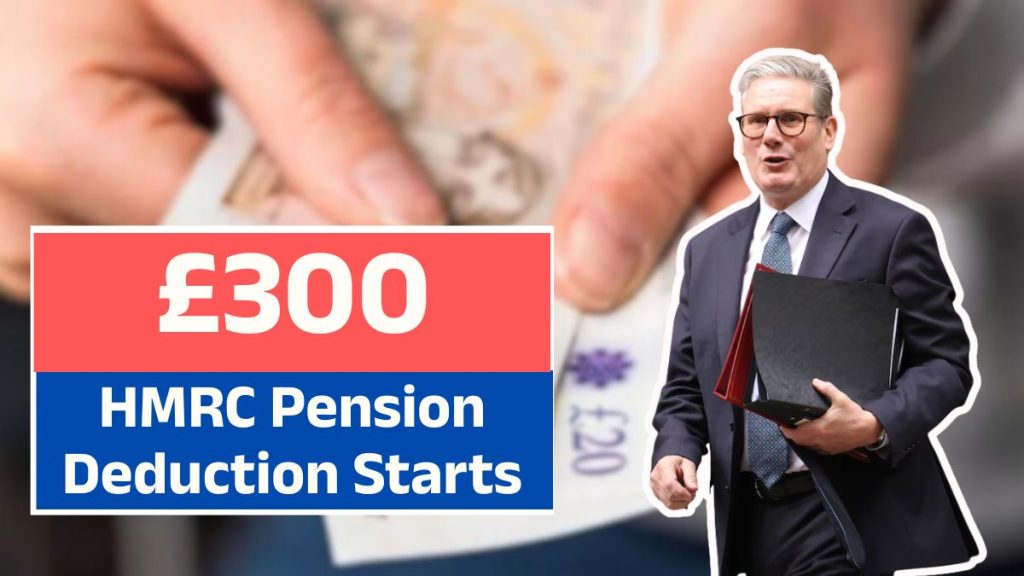The UK Government has officially announced a nationwide daily cash withdrawal limit, effective 25 October 2025. This landmark change will apply to banks, building societies, and post office counters across the country. The government says the policy aims to improve financial transparency, combat money laundering, and promote digital payments in an increasingly cash-light economy.
The reform is part of a broader push to modernise the UK’s financial system while maintaining fair access to cash for everyone — from pensioners to small business owners.
What Is the New Cash Withdrawal Limit?

Starting 25 October 2025, UK residents will be subject to a £3,000 daily withdrawal limit across all channels — including ATMs, bank branches, and post office counters.
This cap applies to both personal and business accounts, ensuring consistent regulation across the financial sector. However, exceptions will exist for special cases such as property purchases, emergency medical costs, or verified business transactions.
The rule forms part of the UK’s long-term financial reform plan to make cash flow more traceable and secure, reducing the risk of illegal activities tied to unmonitored cash use.
Why the Limit Is Being Introduced
The government’s reasoning behind this reform is twofold: enhancing security and aligning with global digital finance trends.
Over the past decade, digital payments have grown rapidly, with more than 80% of UK transactions now completed electronically. While cash remains essential for some demographics, particularly seniors and rural communities, authorities believe large unmonitored withdrawals pose financial and security risks.
By capping daily limits, the government aims to deter money laundering, fraud, and tax evasion, while also encouraging safer, traceable financial behaviour.
Who Will Be Affected by the Rule
The new rule applies broadly across the population, including:
- All UK citizens and residents holding bank or building society accounts.
- Businesses that rely on high-volume cash dealings.
- ATM and Post Office customers withdrawing cash directly.
For most people who withdraw modest sums, the change will be barely noticeable. But those accustomed to withdrawing larger amounts regularly will need to adjust their banking habits or request exemptions for specific cases.
Exceptions and Special Permissions
Despite the limit, the government has confirmed that exceptions will be permitted where necessary. Customers can request larger withdrawals by providing additional documentation or explaining the transaction’s purpose.
Examples of approved exceptions include:
- Cash payments for property or vehicle purchases.
- Emergency medical expenses or urgent family-related needs.
- Verified business cash transactions with legitimate invoices.
Each case will be individually reviewed by the customer’s bank, which may request proof to ensure funds are used for legitimate reasons.
How to Prepare for the New Withdrawal Rules
Financial experts advise all UK residents to review their banking routines before the 25 October 2025 implementation date. The following steps can help make the transition smooth:
- Reduce dependence on cash withdrawals for large purchases.
- Activate online or mobile banking to manage finances digitally.
- Use debit, credit, or contactless cards for regular spending.
- Keep limited cash reserves for emergencies only.
- Stay updated through official bank notifications and government bulletins.
Adopting digital payment methods not only improves convenience but also enhances security against theft or loss.
Impact on Small Businesses
Small and local businesses that rely on cash transactions — such as market traders, shop owners, and service providers — may feel the initial impact of the new cap. However, experts suggest the change could lead to long-term benefits through digital adoption.
Key Adaptation Tips for Small Businesses
- Introduce contactless and QR-based payment systems.
- Keep transparent records of cash inflows and withdrawals.
- Train staff on secure digital banking practices.
- Inform customers about new payment options to maintain trust and convenience.
Transitioning to a hybrid model of digital and limited cash payments will help businesses remain compliant and efficient.
Banks’ Reaction to the Policy
Major UK banks including Barclays, HSBC, Lloyds, and NatWest have publicly endorsed the withdrawal limit. They believe the rule will enhance financial security and reduce risks associated with untraceable cash flows.
Many banks are already rolling out customer education initiatives, helping account holders understand secure online banking and manage digital payments effectively.
Additionally, institutions will offer support lines and workshops to assist elderly or digitally unfamiliar customers through the transition.
Public Concerns and Reactions
The public response has been mixed. While many welcome the move as a necessary step toward modernization, others worry about accessibility and inclusion — particularly in rural areas and among older citizens.
Consumer groups highlight two key concerns:
- Rural Access: Some communities are losing ATMs and bank branches, making cash harder to obtain.
- Digital Divide: Elderly residents and those without reliable internet access may struggle with digital alternatives.
The government and regulators have acknowledged these issues and pledged to ensure continued cash availability for all communities.
Government’s Commitment to Cash Access
To address public anxiety, the UK Treasury and Financial Conduct Authority (FCA) have confirmed that cash will remain legal tender across the UK.
Every community will continue to have access to basic cash services — including withdrawals and deposits — through banks, building societies, and post office counters.
The FCA will closely monitor how banks implement the rule to ensure the transition remains smooth, fair, and inclusive.
Impact on Pensioners and Benefit Claimants
The Department for Work and Pensions (DWP) has clarified that pension and benefit payments will not be affected. Funds will continue to be deposited directly into recipients’ accounts.
However, those who traditionally withdraw their entire pension or benefit payments in cash each week will need to adjust their routines to fit within the £3,000 daily limit.
Officials are encouraging pensioners to explore digital spending options, such as setting up direct debit payments for bills or groceries, to reduce cash dependency.
Broader Economic Implications
The introduction of withdrawal limits signals a broader government strategy to modernise the UK’s financial landscape and reduce reliance on cash-based transactions.
By promoting digital payments, the government aims to:
- Reduce financial crime and untraceable cash movements.
- Encourage financial inclusion through secure digital platforms.
- Support the transition toward a cash-light, environmentally friendly economy.
This shift mirrors policies already implemented in parts of Europe and Asia, where daily withdrawal limits and contactless payments have become standard practice.
The Future of Cash in the UK
Experts see the £3,000 cash limit as a pivotal moment in the UK’s financial evolution. With digital banking and contactless payments already dominating, the role of physical currency is expected to continue declining.
However, the government maintains that financial inclusion remains a top priority. Efforts will continue to ensure that elderly citizens, low-income households, and rural residents retain easy access to basic banking services.
The ultimate goal, according to Treasury officials, is a balanced financial system — one that is both digitally advanced and socially inclusive.
What This Means for Everyday Britons
For the average person, the new rule may require only minor lifestyle adjustments. But it also marks a significant cultural change — one that encourages people to rethink how they manage, spend, and secure their money.
By preparing early, adopting safe digital practices, and staying informed through official channels, UK residents can navigate the 2025 transition smoothly while embracing the benefits of a modern financial system.
FAQs
1. When will the new UK cash withdrawal limit take effect?
The new £3,000 daily withdrawal cap comes into effect on 25 October 2025, applying to all banks, building societies, and post offices.
2. Can I withdraw more than £3,000 in one day?
Yes, but only in exceptional cases such as property purchases, emergencies, or verified business needs — and only after submitting supporting documentation.
3. Will pensioners or benefit claimants be affected?
Not directly. Payments will continue as usual, though those who withdraw full amounts in cash may need to adjust their withdrawal habits.
4. Is cash being phased out completely in the UK?
No. The government and FCA have assured that cash remains legal tender, and every community will continue to have access to basic banking facilities.
5. How can I prepare for the change?
Start using digital payment methods, reduce large cash withdrawals, and stay informed through bank updates and official government communications.



















